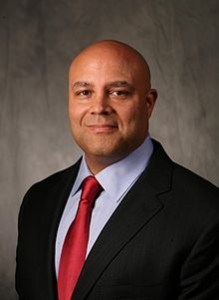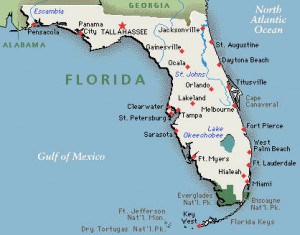Americans need to stand up and say “no” to more telecom mergers and lobbying efforts that push for additional deregulation and corporate protectionism in the telecommunications sector. Unfortunately, we are in for a fight, thanks to Washington’s problem disappointing a multi-billion industry that lavishly finances political campaigns, conventions, and vacation outings.
Michael Copps, former commissioner on the Federal Communications Commission from 2001-2011 and acting chairman for the first six months of the Obama Administration ought to know.
“The consolidated world of telecom broadband did not evolve from the hand of God, the mysterious workings of natural law, or the inevitability of market-based dynamics,” Copps wrote in his essay, “Why Give Up on Competition?” “It was enabled by conscious decision-making at the federal level, largely through the abdication of its oversight responsibilities by the Federal Communications Commission over the better part of 30 years.”
In short, it did not have to turn out this way, no matter what the telecom industry and their astroturf friends have to say.
“Go to just about any telecom conference these days, and some industry maven will make the case that restoring competition to the telecom world is so 1990s,” Copps writes. “Why don’t we all just recognize the inevitable, they ask: telecom is a natural monopoly, competition is a chimera, and the sooner we flash a steady green light for more industry consolidation and less government oversight, the better off we’ll all be.”
Too many in Washington are already true believers, according to Copps, and the result is two companies controlling over 2/3rds of the wireless marketplace and a broadband duopoly for most Americans. This did not happen overnight. Enormous and expensive lobbying campaigns run for over a decade have convinced lawmakers that less is more when it comes to telecom regulation and oversight. Regulators ringing alarm bells about deregulation without sufficient competition have been picked off, says Copps, by the telecom industry-backed American Legislative Exchange Council (ALEC), which has convinced at least 19 state legislatures to wipe away authority from state public service commissions that for years have been trying to protect consumers and preserve competition.
The Telecommunications Act of 1996 was originally designed to open the telecommunications marketplace to increased competition, but also ensure a level playing field for competitors by charging the FCC to implement and enforce strong rules to keep incumbent telecommunications companies from steamrolling new competitors.

No surprises here: Michael Powell was FCC chairman during the deregulation frenzy of the first term of George W. Bush. Today, he’s the president of the National Cable & Telecommunications Association, the largest cable industry lobbying group in the country.
With the arrival of President George W. Bush, the new Republican majority at the FCC promptly began obliterating checks and balances at the behest of some of the nation’s largest phone and cable companies. The results:
- Reselling rights and wholesale leasing of facilities to competitors were wiped away, guaranteeing monopoly control of already-established networks;
- Opening up the long distance and local market to Baby Bell competition with their promise they would compete nationwide failed. Like Big Cable, the Baby Bells sold local and long distance only to their own customers, not to those located in another Baby Bell’s service area;
- Instead of competing, phone companies simply bought each other. “As soon as one transaction was approved, another one came through the door,” Copps reported. “Sometimes it seemed like the merger approval business was our only business.”;
- ” The FCC voted, over the strenuous objections of Commissioner Jonathan Adelstein and me, to remove advanced telecommunications (broadband) from the purview of Title II of the Telecommunications Act—where consumer protections, competition, privacy, and public safety are clearly mandated—and placed them instead in the nebulous and uncharted land of Title I, where regulatory authority is uncertain, consumer protections are virtually non-existent, and where the huge companies are better positioned to wreak havoc on the promise of competition,” Copps said.
To right the wrongs, Copps wants some major changes to reignite competition and return to telecom innovation, eliminating the stagnation we have from today’s cozy, barely competitive marketplace:
- Learn to say “no” to more industry mergers. Consolidation has not brought communications nirvana for consumers, just higher prices and fewer choices, often from a monopoly provider;
- Encourage innovative approaches like municipal broadband. Copps: “‘My way or nothing’ may be the mantra of the big guys, but that means no broadband in places they don’t wish to serve.” Copps wants to see the federal government pre-empt state bans on public broadband laws provider-backed ALEC has gotten through legislatures across the country;
- Smarter stewardship of wireless spectrum, including unlicensed spectrum use, shared spectrum, smarter technology, and a “use it or lose it” policy that pulls back unused/warehoused spectrum held by some of the nation’s largest wireless carriers.


 Subscribe
Subscribe







